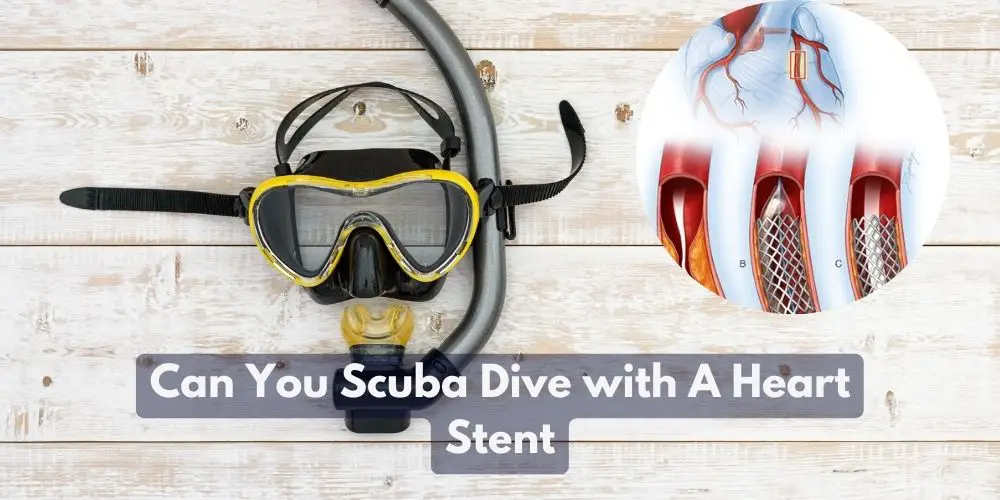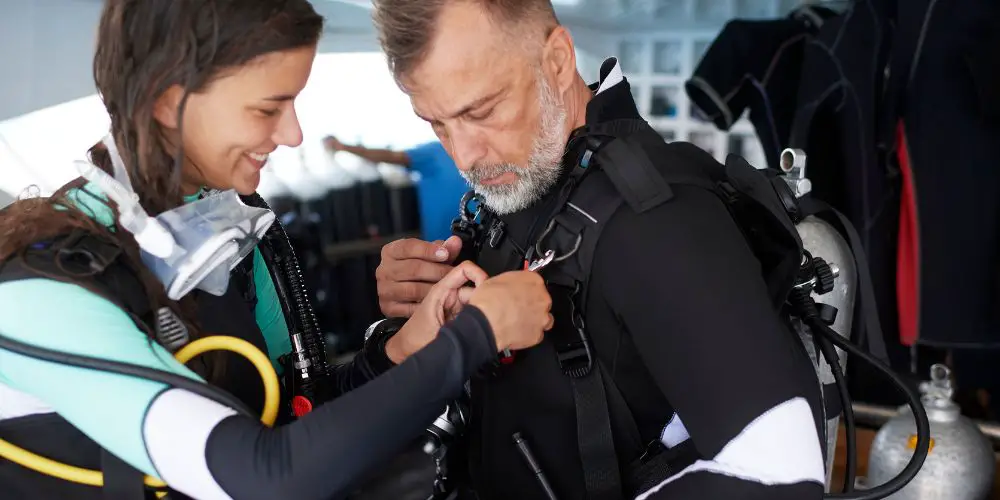
Heart stents have revolutionized the treatment of coronary artery disease, improving blood flow to the heart. But can individuals with heart stents partake in scuba diving? Scuba diving presents unique challenges due to pressure changes underwater. In this blog post, we explore the compatibility of scuba diving with heart stents, understanding their purpose and the physiological impacts of diving. We’ll address safety considerations, provide insights from experts, and determine whether scuba diving is possible for those with a heart stent. Let’s discover if the mesmerizing underwater world is within reach for stent recipients.
But at first…
Can You Scuba Dive with A Heart Stent?

No, scuba diving with a heart stent is generally not recommended without consulting a cardiologist. The unique risks and pressure changes underwater can impact the cardiovascular system. It is crucial to seek medical guidance to evaluate individual risks and ensure safety. Ignoring medical advice can pose serious risks to your health. Prioritize your well-being and consult with a professional before considering scuba diving or exploring alternative water activities.
Understanding Heart Stents and Their Function
Heart stents are small mesh-like tubes inserted into narrowed or blocked arteries to improve blood flow. They are commonly used in conditions such as coronary artery disease, acute coronary syndrome, and angina. By acting as scaffolds, stents widen the arteries, relieve symptoms, and reduce the risk of complications.
The Impact of Scuba Diving on the Body
Scuba diving exposes the body to pressure changes underwater. As pressure increases with depth, it affects the respiratory and circulatory systems. Lung compression impairs gas exchange, while pressure changes can lead to the formation of nitrogen bubbles in the bloodstream, causing decompression sickness.
Understanding the physiological effects and risks of scuba diving is essential, especially for individuals with health conditions like coronary artery disease. Proper training, awareness, and adherence to safety guidelines are crucial for a safe and enjoyable diving experience.
Safety Considerations for Scuba Diving with a Heart Stent
Before scuba diving with a heart stent, it’s vital to prioritize safety by consulting with a cardiologist. They will assess your medical condition, stent stability, and overall cardiovascular health to determine if diving is safe. Specific factors influencing the decision include the time since stent placement, type of stent, and any ongoing cardiac issues. Following medical guidelines and recommendations tailored to your condition is essential for a safe diving experience. Consulting with a cardiologist ensures informed decision-making and prioritizes your well-being while exploring underwater wonders.
Case Studies and My Personal Experiences
Scuba diving with a heart stent is not an entirely uncharted territory. Many individuals with heart stents have successfully enjoyed diving while taking necessary precautions. In this section, we will explore some real-life case studies and share my personal experiences as a diver with a heart stent.
Real-life Case Studies:
Sarah’s Journey: Sarah, an avid diver, discovered she needed a heart stent after experiencing chest pain during a routine dive. Concerned about the impact of diving on her condition, she consulted with her cardiologist and underwent a thorough evaluation. With proper medical guidance and close monitoring, Sarah gradually resumed diving, ensuring she stayed within safe depths and always dived with a buddy. Her story showcases the importance of open communication with healthcare professionals and responsible decision-making.
Personal Experiences: As someone with a heart stent who enjoys scuba diving, I can attest to the fact that it is indeed possible to engage in this exhilarating activity with proper precautions. Here are a few key insights from my personal journey:
- Consultation with a Cardiologist: Before embarking on any diving adventure, it is crucial to consult with a cardiologist who can assess your individual situation. They will consider factors such as the type and location of the stent, your overall heart health, and any additional risk factors.
- Maintaining Regular Check-ups: Regular check-ups are vital to monitor your cardiovascular health and ensure your heart stent is functioning optimally. This includes routine stress tests, echocardiograms, and discussions with your cardiologist to address any concerns.
- Following Safe Diving Practices: Adhering to established diving protocols is essential for everyone, but particularly crucial for individuals with heart stents. This includes diving with a buddy, staying within recommended depths, monitoring your air consumption, and avoiding strenuous activities underwater.
- Listening to Your Body: It’s crucial to be attuned to your body’s signals while diving. If you experience any discomfort, shortness of breath, or abnormal symptoms, it’s important to ascend slowly, inform your diving buddy, and seek medical attention if necessary.
Learning from Others:
Connecting with fellow divers who have undergone similar experiences can be incredibly valuable. Online forums, support groups, and diving communities often provide a platform for sharing stories, insights, and best practices. Learning from others’ experiences can help broaden your knowledge, offer new perspectives, and provide a sense of camaraderie.
Remember, each individual’s experience may differ, and it is essential to prioritize your health and safety above all else. Scuba diving with a heart stent is possible, but it requires careful consideration, adherence to medical advice, and responsible diving practices. By drawing inspiration from case studies and leveraging the collective wisdom of experienced divers, you can confidently explore the underwater world while safeguarding your well-being.
Alternative Water Activities for Individuals with Heart Stents
While scuba diving may not be suitable for everyone with heart stents, there are alternative water-based activities that provide enjoyment and fulfillment. Here are some recommendations:
- Snorkeling: Explore underwater environments from the surface, observing marine life without scuba gear.
- Swimming: Engage in low-impact cardiovascular exercise through leisurely laps or open water swimming.
- Kayaking or Canoeing: Experience tranquility while paddling through calm lakes, rivers, or coastal areas.
- Stand-up Paddleboarding (SUP): Enjoy a full-body workout while gliding on calm waters and improving balance.
- Water Aerobics: Join low-impact classes in shallow pools to improve fitness, flexibility, and muscle strength.
- Fishing: Relax, connect with nature, and spend quality time while engaging in a calming water activity.
Consult your cardiologist before starting any new activity. These alternatives ensure an active lifestyle while prioritizing your health and well-being.
Final Thoughts
While scuba diving may not be suitable for individuals with heart stents, alternative water activities offer fulfilling and enjoyable experiences. Snorkeling, swimming, kayaking, SUP, water aerobics, and fishing provide opportunities for staying active, connecting with nature, and prioritizing health. Consulting a cardiologist and making informed choices ensures a fulfilling lifestyle while safeguarding well-being. Embrace these alternatives and continue to enjoy the water, live life to the fullest, and prioritize health with alternative water activities.
